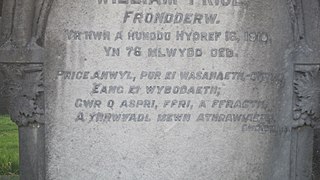 W
WCornish literature refers to written works in the Cornish language. The earliest surviving texts are in verse and date from the 14th century. There are virtually none from the 18th and 19th centuries but writing in revived forms of Cornish began in the early 20th century.
 W
WDe raris fabulis is a collection of 23 or 24 short Latin dialogues from 9th- or 10th-century Celtic Britain. The dialogues belong to the genre known as the colloquy. These were pedagogical texts for teaching Latin in monastic schools.
 W
WEnglyn is a traditional Welsh and Cornish short poem form. It uses quantitative metres, involving the counting of syllables, and rigid patterns of rhyme and half rhyme. Each line contains a repeating pattern of consonants and accent known as cynghanedd.
 W
WKresen Kernow in Redruth, United Kingdom is Cornwall's archive centre, home to the world's biggest collection of archive and library material related to Cornwall. Funded by the National Lottery Heritage Fund and Cornwall Council and opened in 2019, it brings together the collections which were previously held at Cornwall Record Office, the Cornish Studies Library and Cornwall and Scilly Historic Environment Record as well as in various outstores.
 W
WThis is a list of writers in English and Cornish, who are associated with Cornwall and Cornish linguists. Not all of them are native Cornish people.
 W
WThe Morrab Library is an independent library based in Penzance, Cornwall in the UK.
 W
WThe Vocabularium Cornicum, also known as the Cottonian Vocabulary or the Old Cornish Vocabulary, is a Latin-Old Cornish glossary. It is usually interpreted as an Old Cornish translation of Ælfric of Eynsham's Latin-Old English Glossary, and it is considered to be the most substantial extant document of the Old Cornish period. The only surviving copy, part of a composite manuscript known as MS Cotton Vespasian A. xiv, is now kept in the British Library, and is thought to have been copied around 1200 ad from an earlier exemplar.